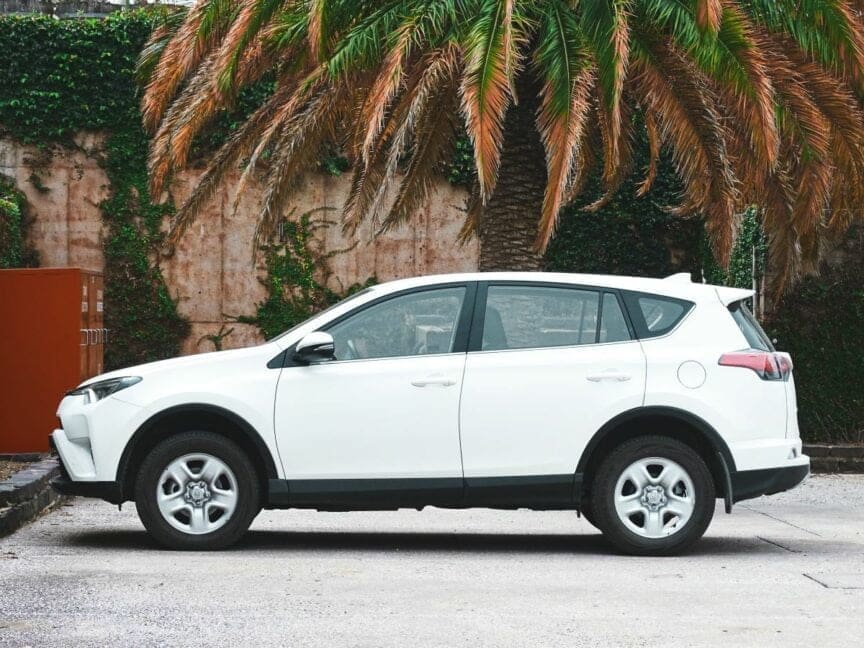Dr Steve Enticott, tax expert and financial media presenter has some suggestions about the best way to go about purchasing your next car.
Once you’ve decided you want to buy a car, but before you start looking around for the right one, do some good internet research and ask yourself a few questions:
- Is it a requirement for my job that I have a car?
- Is a car essential for my lifestyle or just an easy option?
- Could a combination of rideshare, carshare and public transport be a better option for me, financially?
- Will buying a car impact on my other savings goals, like a holiday or house?
- What is the difference between the car that I need and the car I want?
Buy a car at the end of the month or at the end of the financial year
Go ahead and plan your purchase but don’t sign a contract until near the very end of a month. Many car dealers operate on monthly sales targets and may be more likely to offer discounts and throw in free optional extras around this time of the month to help them meet their monthly targets.
Be serious about safety
Considering ANCAP safety ratings is an important part to choosing a car, they indicate how likely you (and your family) would be to being injured or killed in a serious accident. The price difference between safe and unsafe cars can be huge and can also affect the cost of your car insurance. When you are looking for a cost-effective drive and a safe vehicle, don’t settle for less than a 4- or 5-star ANCAP rating.
Do your homework on the car you want
Find out all about your chosen car; including the typical retail and resale prices before you commit to buy. Make sure you understand what extras are available, what they mean (leather interior? window tint? towbar? antimicrobial treatment??) how much each one costs and the impact on the car’s resale value. This will give you a baseline against which to negotiate the price and an understanding of what those “free” extras are actually worth, to you.
Know the negotiating dos and don’ts
- Do keep your expectations realistic, you probably won’t be able to haggle much from an already-discounted price.
- Do keep discussions friendly and polite, good manners go a long way and sometimes getting the best deal simply comes down to how much someone likes you.
- Don’t be afraid to walk away… if they’re not budging on the price, go and find someone who will. And if you can’t find a better deal elsewhere then you know you probably had the right price earlier.
- Do leave your phone number if you decide to walk away… they just might call you later with a better offer.
Make car dealers compete with each other
A dealer might immediately reject your first offer almost on principle, but they may well accept that very same offer when you ask them to match their competitor’s price. There is always a better deal out there somewhere if you have the time and the motivation to find it and dealers know this. Try to talk to at least a few different dealers before committing and let them know they’re competing for your business.
Always take a test drive
There is no substitute for a test drive. If you’re deciding between different cars or models, try to test drive them all.
Beware of unwanted extras
Dealers are always ready to generously throw in optional extras ‘at cost’ to sweeten a deal. Do your research about what extras you might really want rather than getting caught up in the moment and committing to something you didn’t want or need. Don’t be afraid to counter an offer of one ‘extra’ with another that you do want.
Some of the extras you almost certainly don’t want are an extended warranty, rustproofing and paint protection. New cars already have a version of all of these, and the extras are often just sales-driven upgrades.
Check the fuel consumption
Look for a yellow sticker on the windscreen to check the car’s fuel consumption or see the Australian Government’s Green Vehicle Guide. This will allow you to you to compare efficiency between vehicles giving you a reasonable indication of ongoing operating costs.
Tick these boxes before you buy a car
- Do you understand the terms and conditions of the contract?
- Make sure you know exactly what you’re signing up for
- Have you shopped around? If you haven’t spoken to several dealers, then you’re almost certainly not going to get the value you should.
- Understand what is and isn’t included. Be sure you aren’t paying for unwanted extras and that you’re not missing anything you need.
- You understand the future insurance and running costs of your chosen car.
Compare all your loan options
You have a lot of options when it comes to car financing, and it pays to understand how they differ and what makes one loan more appropriate for your situation than another. As a first step, just call your bank and ask them what they can do for you.
Dr Steve Enticott and CIA Tax are a chartered tax and wealth advisory service recommended by First Option Bank.
Photo by Vlad Kutepov on Unsplash


